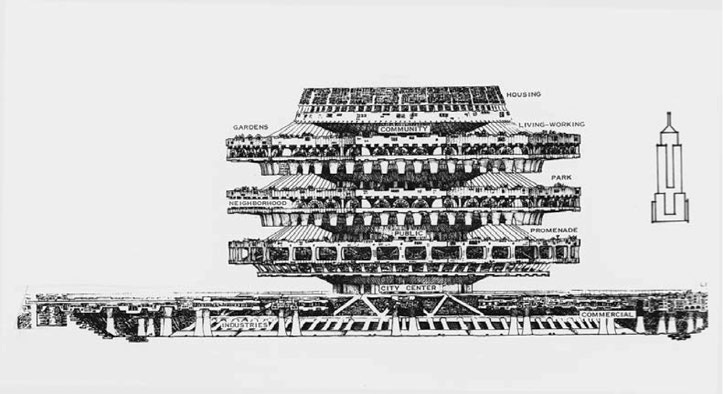🌍 Venturing in ReFi #21
Your 5-minute deep-dive into regenerative web3 startups
Happy Thursday, investors and builders,
Below are your global news and curated articles on web3 applications for impact. Today’s curated articles cover:
🧠 A new mental model for understanding crypto products
💵 A different insight on the stablecoins crash
🧑🔬 A guide to understanding zero-knowledge proofs
Here’s your snapshot of our burgeoning ecosystem:
Global Ecosystem News 🌊
Fundraises
💸 GreenTrade, a Berlin-based startup, raised pre-seed funding led by Cerulean Ventures to build a blockchain-based marketplace for carbon credits and impact claims.
🧮 The on-chain carbon marketplace ClimateTrade acquired E-Verde, a carbon footprint calculator, to integrate into its website.
🧬 Pfizer, the multinational pharmaceutical company, submitted a proposal to contribute $500,000 to VitaDAO, a DeSci community that funds life extension research.
Ecosystem News
💻 Celo announces the Build with Celo Hackathon (📅 Aug 26 - Nov 18, online)! Founders may submit ReFi project ideas by Sept 11 to participate.
🤝 Flowcarbon announced a partnership with E.V. charging app C+Charge to allow E.V. drivers to earn Flow-backed carbon credits when using the C+Charge charging network.
🌿 Menthol, a protocol for automating carbon offset purchases for dApps & blockchains, is now selling Nori’s tokenized carbon offsets.
🍔 The British government launched pilot programs to test digital solutions, including blockchain and IoT, to track food supply chains.
🏗️ The China Construction Bureau launched its carbon management platform, using “advanced digital technology” to track the construction industry’s carbon emissions.
🌍 The Celo Foundation launched the Celo Africa Web3 Fund to scale startups and crypto adoption in Africa.
🔀 The Ethereum Network is set to switch from Proof-of-Work to Proof-of-Stake next week, lowering its carbon emissions by over 99%.
Newly Launched Projects 🚀
🌲 Gaming studio Carbon Counts unveiled its first mobile game, EverForest, using Web3 to finance real-world tree planting as players progress through the game.
🚦 Senken deployed the beta version of their on-chain carbon credit marketplace on Celo. It will launch to the public next week.
🌄 Singaporean-based Nature’s Vault opened the whitelist for their NVLT token, which represents at least 1/100 oz of gold protected and preserved in the ground.
🌎 EarthFund, a Web3 platform to help impact DAOs build community and scale, launched their new DAO dashboard.
👩🚀 PozzlePlanet released the alpha version of their “Impact-2-Earn” consumer application, allowing PozzlePlanet NFT holders to verify their planet-positive activities to earn $POZ.
🌐 Creduce, an Indian climate consulting company, launched the KICHEE token, a digital asset representing 1/10th of a verified carbon credit.
Founders, feel free to submit your project here.
Weekend Reading 📚
1 - Hyperstructures — a new way to assess crypto protocols
The “products” founders can build in web3 often differ from the models VCs understand. The crypto protocol’s ownership structure, what gives the project value, and the applications vary drastically. Jacob Horne, the founder of Zora, clearly describes the term hyperstructures as a new way to understand these businesses.
Hyperstructures describe digital infrastructure with specific, unique features that will reshape our digital age. Jacob’s description of value accrual is particularly well-written: the “threat of the fee” lets even protocols/tokens that do not generate revenue accrue value.
🎤 Prefer listening? The ReFi Podcast interviewed the Gitcoin founder, Kevin Owocki, on hyperstructures.
Paolo Soleri's "hyperstructure" drawing in ground-level view. (thank you for sharing this article @Ale Borda )
2 - In defense of stablecoins | Financial Times
“The culprit behind the recent crypto tumult was not technology but a concept familiar to traditional finance — bad collateral.”
Miles Jennings writes that stablecoins — and algorithmic stablecoins — actually performed well amidst 2022’s market chaos. The risk was not inherent to the stablecoins’ algorithms.
Regulation is welcome. Well-tailored rulemaking should protect consumers. However, “wholesale changes — such as prohibiting the use of digital assets as collateral altogether — would place an enormous burden on the burgeoning DeFi industry, disrupt digital asset markets, and hinder web3 innovation.”
Lessons need to be learned from the collapse of TerraUSD © Gabby Jones/Bloomberg
3 - Zero-Knowledge on-ramp for engineers/founders
Zero-knowledge (/” Z.K.”) proofs are common features in blockchain projects to preserve privacy. If you’d like to learn more, Manmit Singh — a recent Duke graduate and “outlier” at Floodgate Ventures — wrote this introductory guide.
As a high-level intro — a Z.K. proof allows one party (the prover) to prove to another party (the verifier) that they know a claim is valid without expressing the exact information.
I.e., I can show you that I am older than 21 without showing you my actual birthday. That’s important for restricted online content, KYC checks, and demonstrating ownership.
Fun extras
If you’re looking to build a startup in ReFi, the ReFi Roundup focuses on helping our industry’s founders.
If you’d like a regular analysis of on-chain carbon markets, Toucan Protocol runs the excellent deCarbonized newsletter.
Feel free to hit reply if you have articles/news that will help crypto or climate investors understand ReFi, or if we can help you. 📩
With love,
Alex Filotimo, ThoughtFloats, and the Aera Force DAO
Researching web3 venture investments for a flourishing future
P.S. If you want to contribute research into web3-climate investing, feel free to contact us or contribute to this open-source insights repository.
This newsletter is for educational purposes only. While we strive for accurate and unbiased information, none of it is verified or intended to help as investment advice.


